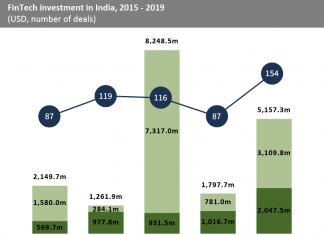In a recent post by Moody’s Analytics, the firm put a spotlight on the ongoing ultimate beneficial rule enhancements in the Asia Pacific region.
A significant shift is occurring in Asia-Pacific, as nations including India, Singapore, and Australia are adjusting their Ultimate Beneficial Ownership (UBO) regulations. Historically, these regulations mainly impacted financial institutions, but the changes seek to extend compliance requirements to other sectors – specifically legal, real estate, and accountancy.
Australia is at the forefront of this trend, undertaking consultations on reforms to the country’s Anti-Money Laundering and Counter-Terrorism Financing (AML/CTF) Act 2006. Labelled ‘Tranche 2′, these reforms are aimed at aligning Australian law with global standards. The legislation will now apply to gatekeeper professions and businesses, including lawyers, accountants, conveyancers, trust and company service providers.
The AUSTRAC, upon Tranche 2’s approval, will prioritise the real estate sector, notorious for its vulnerability to money laundering. However, the move has been met with some resistance, primarily due to the added burden on AUSTRAC and compliance teams. In 2021, the agency estimated this inclusion would increase reporting entity numbers from 16,000 to over 100,000, sparking concerns over a potential clash with legal privilege and client confidentiality duties.
Similarly, India is also revising its UBO landscape, specifically targeting non-financial sectors. In May 2023, it widened the scope of reporting entities under its Prevention of Money Laundering Act (PMLA). This expansion includes company representatives, banking intermediaries, real estate agents, financial companies, and accountants. The pressure to understand beneficial ownership has subsequently intensified, with the PMLA reducing the ownership threshold for Know Your Customer (KYC) checks from 25% to 10%.
Consequently, while India’s banking and financial sector has matured in terms of compliance, the non-financial sector is racing to adapt before the country’s Financial Action Task Force’s mutual evaluation.
Meanwhile, Singapore is introducing tighter regulation for property developers to prevent money laundering and terrorism financing under the Housing Developers Act. These regulations mandate customer due diligence on buyers, suspicious transaction reporting, and beneficial owner identification for entities and legal arrangements. Non-compliance can result in hefty fines and license revocations, posing challenges for smaller firms lacking dedicated compliance resources.
The new rules, effective from June 28, 2023, have sparked a surge in compliance work. Chua Choon Hong, Head of Financial Crime Practice for Asia-Pacific and the Middle East at Moody’s Analytics, suggests firms should adopt automation to minimise manual work and optimise data solutions for reviewing clients’ beneficial ownership structures.
While the international approach to UBO data collection and the definition of beneficial owner remains disparate, the efforts to harmonise regulations across APAC signal a significant step towards effective enforcement. Despite the challenges for compliance teams, available technology can streamline the UBO data collection process, facilitating firms’ compliance with these new regulatory requirements.
Read the full post here.
Keep up with all the latest FinTech news here
Copyright © 2023 FinTech Global











